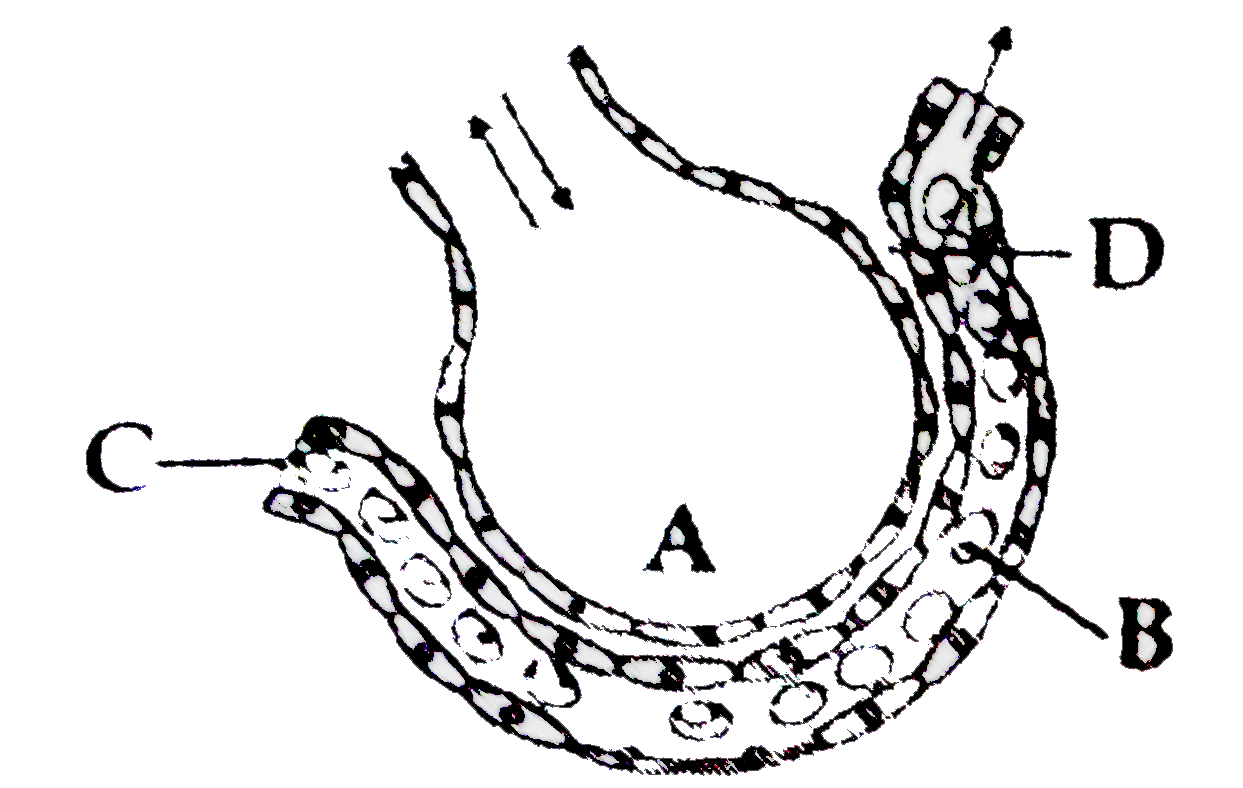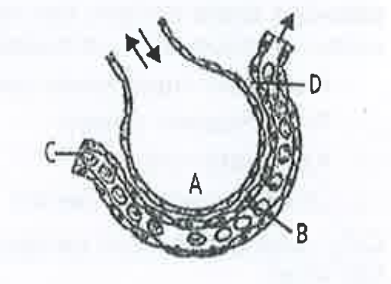The organ in human body where glycogenolysis takes place ?
Large intestine
Liver
Small Intestine
Kidney
The correct Answer is:B
Step-by-Step Solution:
1. Understanding Glycogenolysis:
- Glycogenolysis is the biochemical process where glycogen, a stored form of glucose, is broken down into glucose molecules. This process is crucial for maintaining blood glucose levels, especially during fasting or intense exercise.
2. Identifying the Organ:
- The primary organ responsible for glycogenolysis is the liver. The liver plays a central role in carbohydrate metabolism, including the conversion of glycogen to glucose when blood glucose levels decrease.
3. Considering Other Options:
- Large Intestine: This organ is primarily involved in water absorption and the formation of feces. It does not play a role in glycogenolysis.
- Small Intestine: This organ is mainly responsible for digestion and nutrient absorption, not for glycogenolysis.
- Kidney: While the kidneys have various metabolic functions, they are not the primary site for glycogenolysis.
4. Conclusion:
- Based on the information and analysis of the options, the correct answer is the liver, as it is the organ where glycogenolysis primarily occurs.
Final Answer:
The organ in the human body where glycogenolysis takes place is the liver.
---
- Glycogenolysis is the biochemical process where glycogen, a stored form of glucose, is broken down into glucose molecules. This process is crucial for maintaining blood glucose levels, especially during fasting or intense exercise.
- The primary organ responsible for glycogenolysis is the liver. The liver plays a central role in carbohydrate metabolism, including the conversion of glycogen to glucose when blood glucose levels decrease.
- Large Intestine: This organ is primarily involved in water absorption and the formation of feces. It does not play a role in glycogenolysis.
- Small Intestine: This organ is mainly responsible for digestion and nutrient absorption, not for glycogenolysis.
- Kidney: While the kidneys have various metabolic functions, they are not the primary site for glycogenolysis.
- Based on the information and analysis of the options, the correct answer is the liver, as it is the organ where glycogenolysis primarily occurs.
The organ in the human body where glycogenolysis takes place is the liver.
Topper's Solved these Questions
- HUMAN PHYSIOLOGY -IBOOK - ALLENCHAPTER - HUMAN PHYSIOLOGY -IEXERCISE - EXERCISE-IV(Assertion & Reason)
124 Videos
- HUMAN PHYSIOLOGY -IBOOK - ALLENCHAPTER - HUMAN PHYSIOLOGY -IEXERCISE - BEGINNERS BOX-3
10 Videos
- HUMAN PHYSIOLOGY -IBOOK - ALLENCHAPTER - HUMAN PHYSIOLOGY -IEXERCISE - AIPMT 2015
1 Videos
- HUMAN HEALTH AND DISEASEBOOK - ALLENCHAPTER - HUMAN HEALTH AND DISEASEEXERCISE - Question
116 Videos
- HUMAN REPRODUCTION BOOK - ALLENCHAPTER - HUMAN REPRODUCTION EXERCISE - Question
92 Videos
Similar Questions
Knowledge Check
The meiotic stage where synapsis takes place is:
AleptoteneBzygoteneCpachyteneDdiplotene
Where does krebs cycle take place?
View SolutionThe figure given below shows a small part of human lung where exchange of gases takes place. In which one of the option given below, the one part A, B, C or D is correctly identified along with its functions

View SolutionThe figure given below shows a small part of human lung where exchange of gases takes place in which one of the options given below the one part A,B,C or D is correctly identified along with its function

View SolutionName the lymphoid organ in humans where all the blood cells are produced.
View SolutionWhat are the various routes by which transmission of human immunodeficiency virus takes place?
View SolutionName the following:
The organ in which the absorption of food takes place in humans
View SolutionWhere does C3 cycle take place?
View Solution
